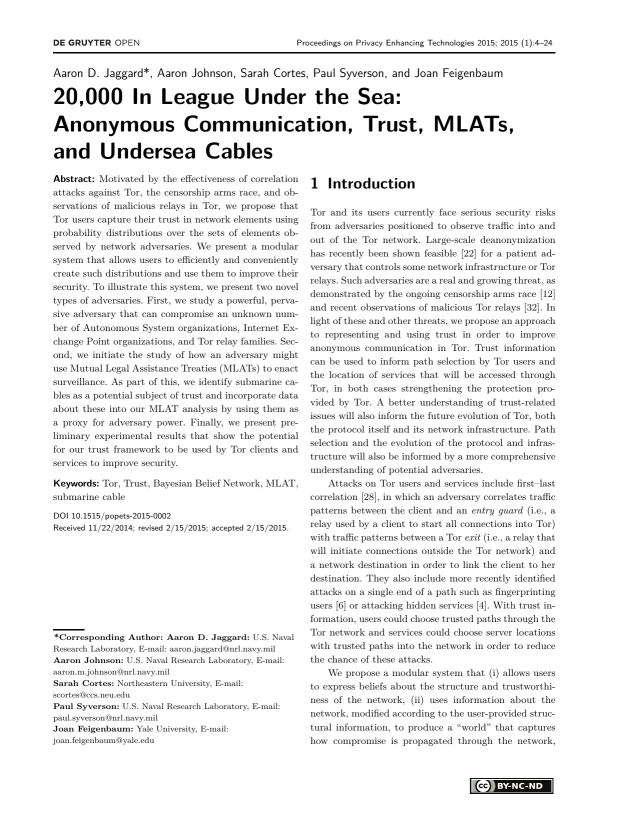20,000 In League Under the Sea: Anonymous Communication, Trust, MLATs, and Undersea Cables
Authors: Aaron D. Jaggard (U.S. Naval Research Laboratory), Aaron Johnson (U.S. Naval Research Laboratory), Sarah Cortes (Northeastern University), Paul Syverson (U.S. Naval Research Laboratory), Joan Feigenbaum (Yale University)
Volume: 2015
Issue: 1
Pages: 4–24
DOI: https://doi.org/10.1515/popets-2015-0002
Abstract: Motivated by the effectiveness of correlation attacks against Tor, the censorship arms race, and observations of malicious relays in Tor, we propose that Tor users capture their trust in network elements using probability distributions over the sets of elements observed by network adversaries. We present a modular system that allows users to efficiently and conveniently create such distributions and use them to improve their security. To illustrate this system, we present two novel types of adversaries. First, we study a powerful, pervasive adversary that can compromise an unknown number of Autonomous System organizations, Internet Exchange Point organizations, and Tor relay families. Second, we initiate the study of how an adversary might use Mutual Legal Assistance Treaties (MLATs) to enact surveillance. As part of this, we identify submarine cables as a potential subject of trust and incorporate data about these into our MLAT analysis by using them as a proxy for adversary power. Finally, we present preliminary experimental results that show the potential for our trust framework to be used by Tor clients and services to improve security.
Keywords: Tor, Trust, Bayesian Belief Network, MLAT, submarine cable
Copyright in PoPETs articles are held by their authors. This article is published under a Creative Commons Attribution-NonCommercial-NoDerivs 3.0 license.

